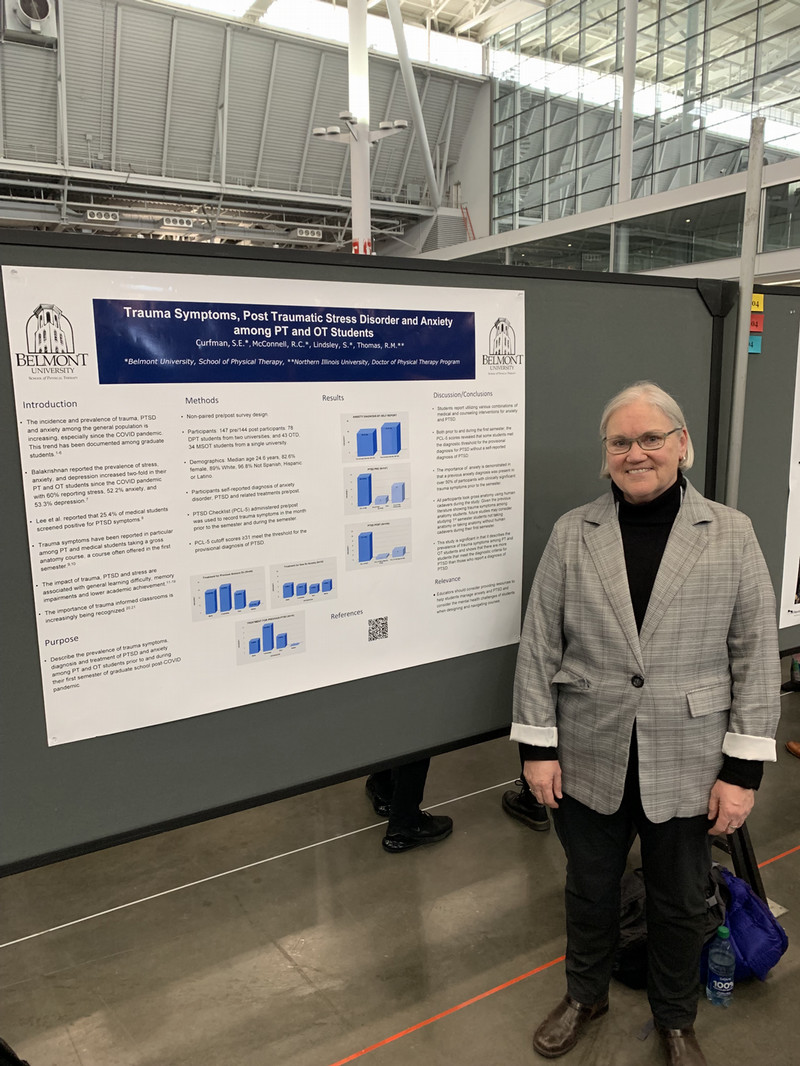In the fields of physical therapy (PT) and occupational therapy (OT), students are not only required to master complex clinical skills but also manage the psychological demands of their rigorous academic environments. This balancing act can be challenging — and often leads to significant stress.
Addressing a critical aspect of student wellness, a collaborative research study led by Dr. Sue Curfman from Belmont University and Dr. Rosanne Thomas from Northern Illinois University, with colleagues Dr. Ryan McConnell and Dr. Stacey Lindsley, explores the mental health impacts experienced by PT and OT students.
The research specifically investigates the prevalence and implications of trauma symptoms, Post-Traumatic Stress Disorder (PTSD) and anxiety among PT and OT students. These issues have become particularly pressing in the context of a global pandemic that has intensified stressors across all levels of society. 
Aiming to shed light on how these psychological challenges impact academic performance and overall well-being, the study sets the stage for targeted interventions in healthcare education. This approach promises to enhance both student resilience and educational outcomes in these critical healthcare fields.
The study involved 147 participants prior to the semester (pre) and 144 participants after the semester (post). At the semester's onset, 14% of participants met the diagnostic criteria for PTSD, a figure that decreased to 8% by the first semester's end. Interestingly, this prevalence surpassed self-reported diagnoses, underscoring the latent burden carried by students who may not recognize their own distress.
The study documented the relationship between trauma and anxiety, with 30% of students reporting a prior diagnosis of anxiety disorder, escalating to 38% by the semester's end. Notably, over 50% of participants with clinically significant trauma symptoms had a prior anxiety diagnosis, emphasizing the intertwined nature of these mental health challenges.
These findings hold significant implications for PT and OT education. By fostering trauma-informed classrooms and providing resources for managing anxiety and PTSD, educators can cultivate an environment conducive to student well-being and academic success. Moreover, ongoing research endeavors aim to understand the predictive relationship between trauma symptoms, anxiety, and academic achievement among PT students.
"In general, I felt both intimidation and excitement with the research process,” Dr. McConnell reflected. “While the journey to address our questions posed challenges, the significance of reaching the answers made it completely worthwhile."
Dr. Curfman further emphasized the importance of this work, stating, "This work highlights the importance of trauma-informed classrooms and clinical care and compels me to keep looking for ways to see and embrace students and patients in their vulnerable places. I believe that once students and patients are truly seen, all of us are much more likely to be able to learn and grow in transformative ways."
This research provides knowledge, illuminating the path towards a holistic approach to healthcare education — one that prioritizes the mental well-being of students and empowers them to navigate the complexities of their academic journey with resilience and vigor.

